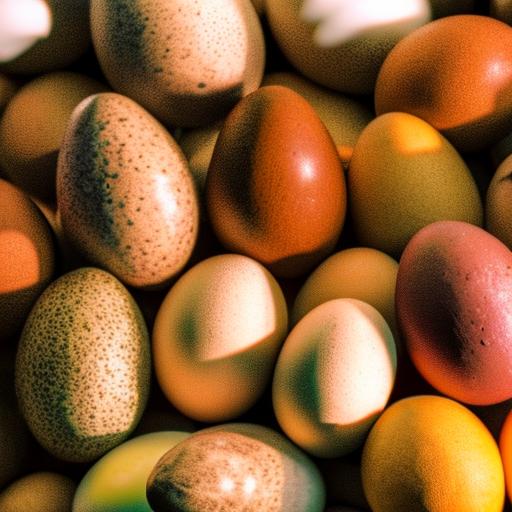Black chicken breeds are distinctive and visually striking additions to poultry flocks. These breeds are characterized by their glossy black plumage, which often imparts an elegant and mysterious appearance. Black chickens exhibit a wide range of sizes and body types, attracting poultry enthusiasts due to their unique traits and aesthetic appeal.
This article examines the characteristics, notable breeds, husbandry requirements, genetic factors, and historical importance of black chicken breeds. Furthermore, it explores the future prospects of these breeds in commercial poultry production and their potential influence on the industry.
Table of Contents
- 1 Characteristics of Black Breeds
- 2 Popular Black Breeds of Chickens
- 3 Care and Maintenance of Black Breeds
- 4 Breeding and Genetics of Black Chickens
- 5 Historical Significance of Black Breeds
- 6 The Future of Black Breeds in Poultry Farming
- 7 FAQs
- 7.1 What are some examples of black breeds of chickens?
- 7.2 What are the characteristics of black breeds of chickens?
- 7.3 Are black breeds of chickens suitable for backyard or small-scale farming?
- 7.4 Do black breeds of chickens lay eggs?
- 7.5 Are black breeds of chickens popular for exhibition or show purposes?
Key Takeaways
- Black chicken breeds are known for their unique appearance and are popular among poultry enthusiasts.
- Black chicken breeds are often characterized by their glossy black feathers, skin, and even internal organs.
- Some popular black chicken breeds include the Ayam Cemani, Black Australorp, and Black Jersey Giant.
- Care and maintenance of black chicken breeds require attention to their unique dietary and environmental needs.
- Understanding the breeding and genetics of black chickens is important for maintaining and improving the quality of these breeds in poultry farming.
Characteristics of Black Breeds
Striking Appearance and Hardiness
Black breeds of chickens are renowned for their stunning appearance, featuring glossy black feathers that can display a green or purple sheen in the sunlight. Their bright red combs and wattles create a beautiful contrast against their dark plumage. Moreover, these breeds are known for their hardiness and adaptability to various climates.
Productivity and Temperament
Black chickens are generally good foragers and thrive in free-range environments. They are also prolific layers, producing a consistent supply of brown eggs. Many black breeds are known for their calm and friendly temperament, making them a popular choice for backyard flocks.
Versatility and Unique Features
Black breeds of chickens come in a variety of sizes and shapes, ranging from large and dual-purpose to smaller and more ornamental. Some breeds have feathered legs, while others have clean legs. Additionally, some black breeds boast unique features such as crests or feathered feet, adding to their appeal. Whether you’re looking for a productive egg layer, a meat bird, or an ornamental addition to your flock, there’s likely a black breed that fits your needs.
Popular Black Breeds of Chickens

There are several popular black breeds of chickens that are prized for their unique characteristics and stunning appearance. One of the most well-known black breeds is the Australorp, which originated in Australia. Australorps are large, dual-purpose birds known for their excellent egg-laying abilities, with hens laying up to 250 brown eggs per year.
They have a calm and friendly temperament, making them a popular choice for backyard flocks. Another popular black breed is the Black Orpington, which is known for its large size, gentle nature, and excellent meat quality. Black Orpingtons are also good layers, producing brown eggs consistently.
The Ayam Cemani is another striking black breed that has gained popularity in recent years. Originating from Indonesia, Ayam Cemani chickens are completely black, including their feathers, skin, meat, and even internal organs. This breed is highly prized for its unique appearance and is often considered a symbol of prosperity and good luck in its native country.
Ayam Cemani chickens are relatively small in size and are primarily kept for ornamental purposes. Other popular black breeds include the Black Jersey Giant, Marans, and Swedish Black hens. Each of these breeds has its own unique characteristics and qualities that make them prized additions to any poultry farm or backyard flock.
Care and Maintenance of Black Breeds
Caring for black breeds of chickens is similar to caring for other chicken breeds, with a few specific considerations due to their unique characteristics. Providing a balanced diet that includes high-quality feed, fresh water, and access to forage is essential for maintaining the health and productivity of black chickens. Additionally, providing adequate shelter and protection from predators is important, as black chickens can be more difficult to spot in low light conditions.
Regular health checks and preventative measures such as vaccinations and parasite control are important for keeping black breeds healthy and disease-free. It is also important to provide adequate space for black chickens to roam and exercise, as they are generally good foragers and enjoy free-ranging. Regular cleaning of the coop and nesting boxes is essential for maintaining a clean and healthy environment for black chickens.
In terms of maintenance, grooming black chickens may require extra care to maintain their glossy feathers and overall appearance. Regular grooming and dust baths can help keep their feathers clean and free from parasites. Additionally, providing roosts and perches of varying heights can help prevent feather damage and foot injuries.
Breeding and Genetics of Black Chickens
Breeding black chickens requires an understanding of genetics and color inheritance. The black coloration in chickens is controlled by multiple genes, and breeding for specific traits such as feather color, comb type, or egg production requires careful selection and breeding practices. In some cases, breeding two black chickens together may not always result in offspring with the desired black coloration, as other genes may influence the expression of color.
To maintain the purity of black breeds such as Ayam Cemani or Black Orpingtons, breeders must carefully select breeding stock with the desired traits and characteristics. Additionally, understanding the genetics of black coloration can help breeders produce offspring with consistent coloration and other desirable traits. In some cases, breeders may also work to develop new varieties or color patterns within black breeds through selective breeding and careful genetic manipulation.
This can result in new and unique variations within black breeds that may appeal to poultry enthusiasts and breeders.
Historical Significance of Black Breeds

Development of Black Breeds
For example, the Black Orpington was developed in England in the late 1800s by William Cook, who aimed to create a dual-purpose breed with excellent meat quality and egg-laying abilities.
Cultural Significance
The Ayam Cemani has a long history in Indonesia, where it is considered a sacred bird with mystical properties. This breed has been prized for its unique appearance and has been used in traditional ceremonies and rituals for centuries. Black breeds such as the Marans have also played a significant role in poultry farming history, particularly in France where they were developed for their dark brown eggs.
Beyond Utility
The historical significance of black breeds extends beyond their utility as egg layers or meat birds, as they have also been valued for their ornamental qualities and cultural significance in various regions around the world.
The Future of Black Breeds in Poultry Farming
The future of black breeds in poultry farming looks promising, as these breeds continue to gain popularity among poultry enthusiasts and small-scale farmers. The unique appearance, hardiness, productivity, and historical significance of black breeds make them valuable additions to any poultry farm or backyard flock. As more people become interested in raising chickens for eggs, meat, or ornamental purposes, black breeds offer a distinct and visually striking option that stands out among other chicken breeds.
Additionally, the growing interest in rare and heritage breeds has led to increased demand for black breeds such as Ayam Cemani or Marans. In conclusion, black breeds of chickens offer a combination of beauty, productivity, and historical significance that make them a valuable asset to the poultry farming industry. Whether you are looking for a productive egg layer, a meat bird with excellent flavor, or an ornamental addition to your flock, there is likely a black breed that fits your needs.
With proper care, maintenance, breeding practices, and an understanding of their historical significance, black breeds will continue to thrive and make a significant impact on the future of poultry farming.
If you’re interested in learning more about black breeds of chickens, you might want to check out this article on chicken coops in Grand Island, NE. It’s important to provide a safe and comfortable environment for your chickens, and this article offers valuable insights on how to do so.
FAQs
What are some examples of black breeds of chickens?
Some examples of black breeds of chickens include the Black Australorp, Black Jersey Giant, and Ayam Cemani.
What are the characteristics of black breeds of chickens?
Black breeds of chickens typically have black feathers, skin, and even internal organs. They are known for their hardiness, good egg-laying abilities, and calm temperament.
Are black breeds of chickens suitable for backyard or small-scale farming?
Yes, black breeds of chickens are suitable for backyard or small-scale farming. They are generally easy to care for and can adapt well to various climates.
Do black breeds of chickens lay eggs?
Yes, black breeds of chickens are known for their good egg-laying abilities. They can produce a consistent supply of eggs throughout the year.
Are black breeds of chickens popular for exhibition or show purposes?
Yes, black breeds of chickens are popular for exhibition or show purposes due to their striking appearance and unique characteristics. They often attract attention and admiration at poultry shows.
Meet Walter, the feathered-friend fanatic of Florida! Nestled in the sunshine state, Walter struts through life with his feathered companions, clucking his way to happiness. With a coop that’s fancier than a five-star hotel, he’s the Don Juan of the chicken world. When he’s not teaching his hens to do the cha-cha, you’ll find him in a heated debate with his prized rooster, Sir Clucks-a-Lot. Walter’s poultry passion is no yolk; he’s the sunny-side-up guy you never knew you needed in your flock of friends!







